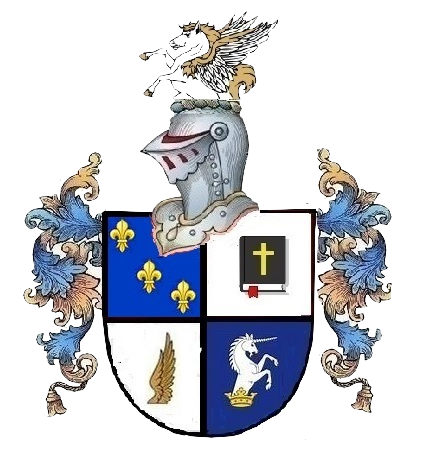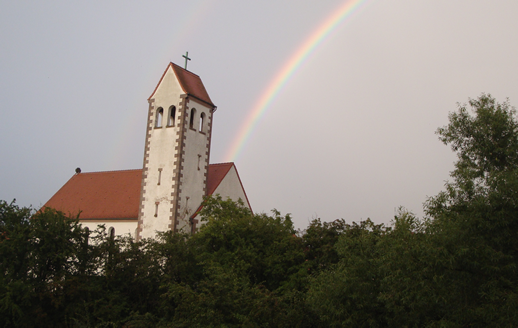What do we know about Easter

Unfortunately we can't trust everything that we have been taught growing up, the established governments of this world including the public school and church leadership have been undermined. Just where did the Easter holiday celebration come from?
"Where Did Easter Come From?
Does the following sound familiar?—Spring is in the air! Flowers and bunnies decorate the home. Father helps the children paint beautiful designs on eggs dyed in various colors. These eggs, which will later be hidden and searched for, are placed into lovely, seasonal baskets. The wonderful aroma of the hot cross buns mother is baking in the oven waft through the house. Forty days of abstaining from special foods will finally end the next day. The whole family picks out their Sunday best to wear to the next morning’s sunrise worship service to celebrate the savior’s resurrection and the renewal of life. Everyone looks forward to a succulent ham with all the trimmings. It will be a thrilling day. After all, it is one of the most important religious holidays of the year.
Easter, right? No! This is a description of an ancient Babylonian family—2,000 years before Christ—honoring the resurrection of their god, Tammuz, who was brought back from the underworld by his mother/wife, Ishtar (after whom the festival was named). As Ishtar was actually pronounced “Easter” in most Semitic dialects, it could be said that the event portrayed here is, in a sense, Easter. Of course, the occasion could easily have been a Phrygian family honoring Attis and Cybele, or perhaps a Phoenician family worshiping Adonis and Astarte. Also fitting the description well would be a heretic Israelite family honoring the Canaanite Baal and Ashtoreth. Or this depiction could just as easily represent any number of other immoral, pagan fertility celebrations of death and resurrection—including the modern Easter celebration as it has come to us through the Anglo-Saxon fertility rites of the goddess Eostre or Ostara. These are all the same festivals, separated only by time and culture."
Ever since the Roman Catholic Church declared that they were the only church to be called Christian, the Papacy has been the authority of the Christian church. They then wrote in their Doctrinal Catechism new doctrine, traditions, and faith practices, including the changing of the sabbath. I believe that a re-thinking of the traditional so-called Christian traditions and holidays to reflect more the Old Testament traditions would be in order. After all it has been over 500 years since the reformation, and not all of those old pagan influences have been examined. At the least we should inspect the celebrations thoroughly to make sure that we are not hunting Easter eggs, and eating marshmallow bunnies during the celebration of Yeshua's resurrection.
We have celebrated the big holidays like Easter and Christmas by taking what we were always taught for granted without actually asking why and if these celebrations are founded by scripture. After looking closely at most of our celebrations we find that a great number of them have esoteric and pagan origins. Somehow I don't think that our Father is happy with us, even unknowingly, worshiping other gods. Following are a few quotes from another website in which people are asking the same questions.
Question:
I have been considering the issue of pagan holy days being repackaged by the Christian church. My tendency in my faith-walk is to fall into legalism (following an outward practice thinking that I am a “better” Christian because of it). Since I know it’s a pitfall for me, I am cautious to change my outward practice until I am certain that is the best way. For example, while the Christian church celebrates Easter and not Passover, does the very act of celebrating Christ’s death and resurrection not somehow redeem the fact that it may not be on the right day or have questionable beginnings (inclusion of pagan elements)? I’ve attempted to discuss this issue with several friends who are Believers, and they tend to “roll” their eyes at my comments. Do you have any insight on this?
Answer:It’s no coincidence that the two most important Christian holidays were once two of the most excessive displays of pagan revelry, characterized by behavior that was specifically forbidden by God. Christians refused to celebrate either of these holidays for over 400 years, but they have now been accepted to a point where to question them invites ridicule.
As far as the Lord’s birth is concerned the actual date is unknown, although an early fall time frame seems most likely. The way the holiday is celebrated is another matter. The commercialism, over indulgence, and prominence of pagan symbols like evergreen trees, mistletoe, and Santa Claus (an all knowing, omni-present father figure who rewards kids based on their behavior) have no place in the celebration of our Lord’s arrival on Earth. Giving each other gifts to celebrate His birth is one thing, but pretending they came from the false god Santa as a reward for good behavior is quite another.
Where Easter is concerned, the very name comes from the Babylonian fertility goddess Ishtar, and the main attractions are eggs and rabbits, which are symbols of fertility. Contrary to the day of the Lord’s birth, Resurrection Morning is well known. It happened on the Jewish Feast of First fruits which falls on the first Sunday morning after Passover. It’s by far the most important event in human history and deserves our full attention in a heart felt expression of praise and thanksgiving. We might be able to convince God that we didn’t know the date of His birth, but we have no such excuse with His resurrection. It’s a good thing we live in the Age of Grace.
Question:
This year our church leaders decided to alter our usual Sunday morning schedule by dropping Sunday School and adding a second Easter service. Between the two services there was an Easter egg hunt in the hope that the activity would draw more of the community’s unchurched who have children. I explained to my Sunday School teacher about the pagan origins of Easter (Ishtar, eggs, rabbits and how the date is determined). In response he quoted Colossians 2:16-17. I told him that was an invalid argument as the previously mentioned items did not fit the definition of Colossians 2:17. Am I off base?
Answer:In Colossians 2:16-17 Paul was addressing the problem of Jews telling Gentile believers they had to obey the Old Covenant law. He said,
“Therefore do not let anyone judge you by what you eat or drink, or with regard to a religious festival, a New Moon celebration or a Sabbath day. These are a shadow of the things that were to come; the reality, however, is found in Christ.”
He was talking about Old Covenant regulations and celebrations. And in any case, God would never have endorsed the inclusion of pagan rituals into the celebration of His Son’s resurrection. This is a case of someone incorrectly using a verse from the Bible to justify something God never intended.
The next link is to a website having another point of view: Are Christian Holidays Pagan in Origin?
I believe in shining a light on the evil in this world. Especially if it on our doorsteps and in our faces. Please take what I have researched here and let it help you make your own decisions about how you will celebrate your next Christian celebration, and any celebration for that matter. This may have been an eye-opener for some, some may disregard it altogether. It is just food for thought and for those seeking a 100% real Christian experience then I might suggest you question everything you have been taught by this world....
-
Hits7260 views





Comments powered by CComment